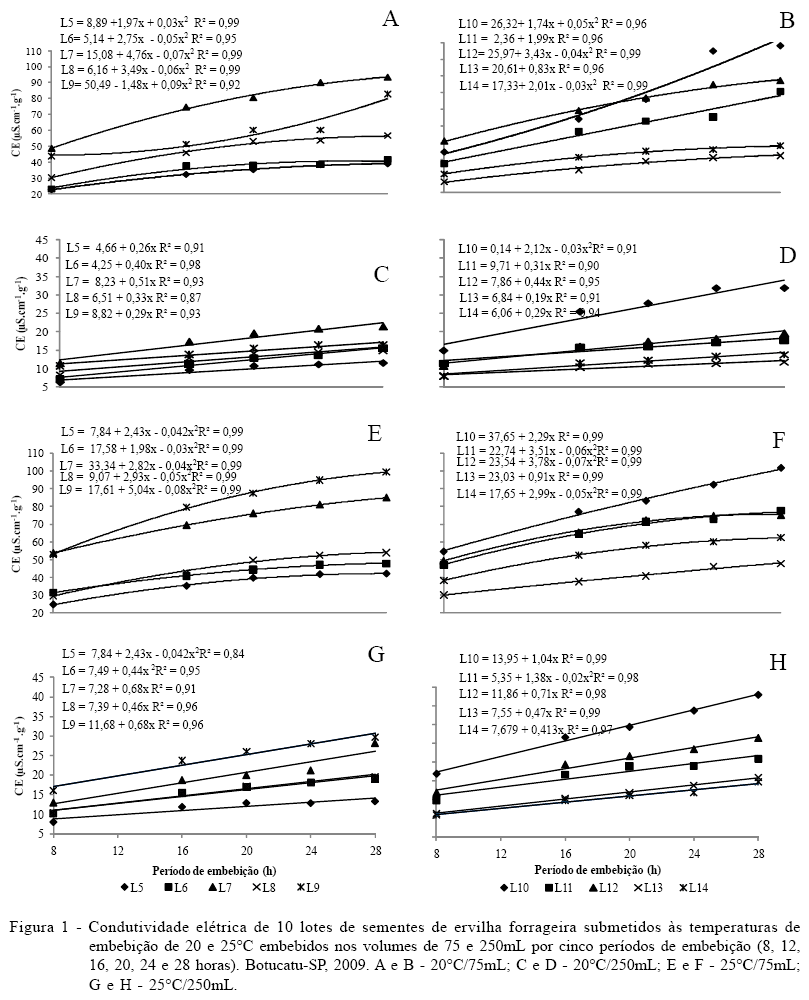Seed quality in agricultural production is a major factor to be considered in the deployment of a crop, so it becomes important to obtain information about seed vigor and germination and. This study had the objective to adjust the methodology of the electrical conductivity test to evaluate the physiological quality of Pisum sativum subsp. arvense seeds. Ten lots of the cultivar 'IAPAR 83' were studied to establish the methodology for the electrical conductivity test. It was studied germination, first count of germination and seedling emergence in greenhouse. For the electrical conductivity test, different temperatures (20°C and 25°C), water volumes (75mL and 250mL) and imbibition periods (8, 16, 20, 24 and 28 hours) were evaluated. For both evaluations, four replications of 50 seeds were used. The vigor and germination tests were sensitive to evaluate the quality of seeds from different studied lots, although there were variations in the ordering of the lots with respect to their vigor. The water volume, time and soaking temperature influenced the electrical conductivity values. It was concluded that the electrical conductivity test is sensitive to differentiate seed lots of forage pea whenever conducted with 250mL of water under 25°C for 24 hours.
forage pea; vigor; physiological potential; leaching




